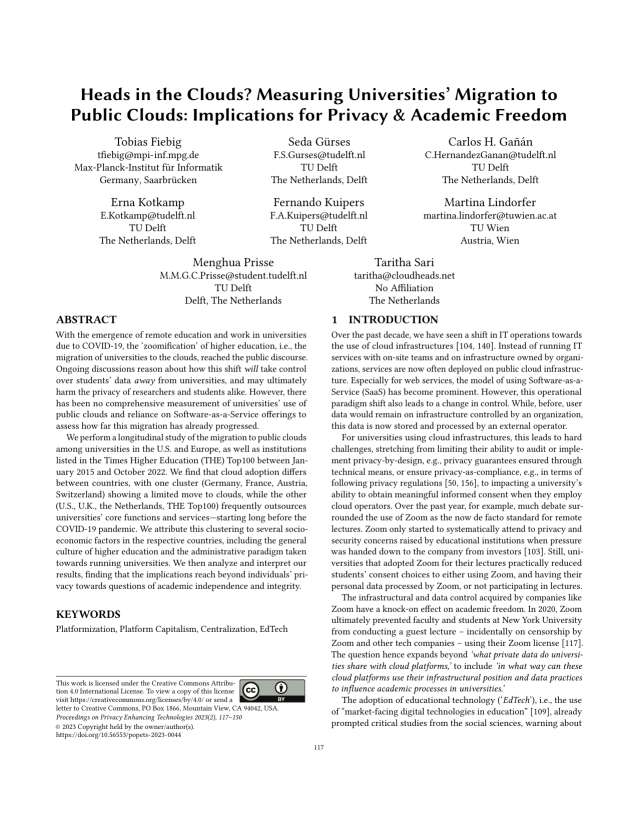Heads in the Clouds? Measuring Universities’ Migration to Public Clouds: Implications for Privacy & Academic Freedom
Authors: Tobias Fiebig (Max-Planck-Institut für Informatik), Seda Gürses (TU Delft), Carlos H. Gañán (TU Delft), Erna Kotkamp (TU Delft), Fernando Kuipers (TU Delft), Martina Lindorfer (TU Wien), Menghua Prisse (TU Delft), Taritha Sari (No Affiliation)
Volume: 2023
Issue: 2
Pages: 117–150
DOI: https://doi.org/10.56553/popets-2023-0044
Abstract: With the emergence of remote education and work in universities due to COVID-19, the 'zoomification' of higher education, i.e., the migration of universities to the clouds, reached the public discourse. Ongoing discussions reason about how this shift will take control over students' data away from universities, and may ultimately harm the privacy of researchers and students alike. However, there has been no comprehensive measurement of universities' use of public clouds and reliance on Software-as-a-Service offerings to assess how far this migration has already progressed. We perform a longitudinal study of the migration to public clouds among universities in the U.S. and Europe, as well as institutions listed in the Times Higher Education (THE) Top100 between January 2015 and October 2022. We find that cloud adoption differs between countries, with one cluster (Germany, France, Austria, Switzerland) showing a limited move to clouds, while the other (U.S., U.K., the Netherlands, THE Top100) frequently outsources universities' core functions and services---starting long before the COVID-19 pandemic. We attribute this clustering to several socio-economic factors in the respective countries, including the general culture of higher education and the administrative paradigm taken towards running universities. We then analyze and interpret our results, finding that the implications reach beyond individuals' privacy towards questions of academic independence and integrity.
Keywords: platformization, platform capitalism, centralization, edtech
Copyright in PoPETs articles are held by their authors. This article is published under a Creative Commons Attribution 4.0 license.


